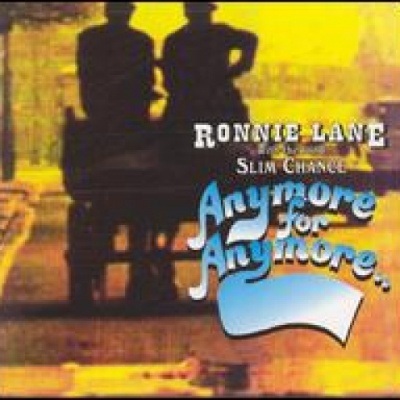
Anymore for Anymore
by Ralph HeibutzkiRonnie Lane certainly chose an apt name for his post-Faces combo, Slim Chance. He only enjoyed one solo hit -- the rootsy yet boisterous "How Come," which made the U.K. Top Ten in 1974. "The Poacher" looked to become his second, if the BBC cameramen's union hadn't gone on strike when Lane and company had been booked to appear on Top of the Pops. Lane's brand of "hobobilly" reflected his life with an equal dash of hard luck and humor. He could pursue a folksier direction than he'd had room to explore in the Faces, and that side certainly shines on "Don't You Cry for Me" -- bolstered by a strong Jimmy Jewell sax hook -- as well as "The Poacher"'s rejection of personal power for its own sake. Lane didn't draw only on his rock & roll roots, however; "Amelia Earhardt" affectionately salutes the doomed '30s aviatrix with a musical nod to that period. He also showed a fascination for British music hall rooty-toot-toot ("Bird in a Gilded Cage"), gospel ("Bye & Bye [Gonna See the King]"), and simple folk (the Dillards' "Roll on Babe"). Of course, Lane's good-natured rowdiness meant that he couldn't resist a good knee-slapper when the temptation arose; "Chicken Wired" fits the bill aptly, with an infectious "chick-chick-chicken" chorus that'll stick to its listeners like the proverbial fly paper. (Lane evidently thought so, too; it appeared again on the Mahoney's Last Stand soundtrack.) Anyone who only casts him as a tragic figure needs to hear that song. New Millennium's reissue appends seven bonus tracks, such as acoustic takes of "How Come" and "The Poacher" and alternate tries of key tracks like "Amelia Earhardt." They're not especially revelatory, but do provide an interesting context for collectors. Ronnie Lane may not have meant much at the Top 40 box office, but his influence remains as broad as ever, and this album's a must-own blueprint.
